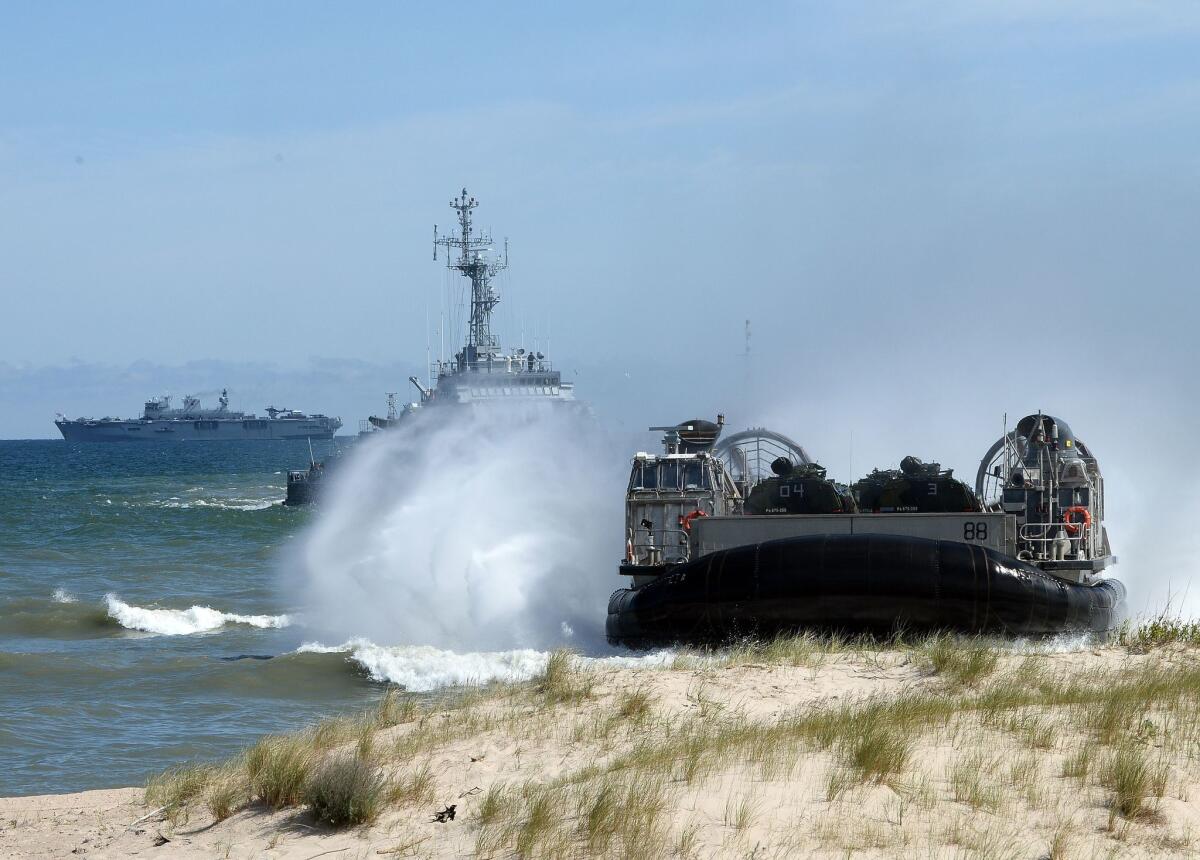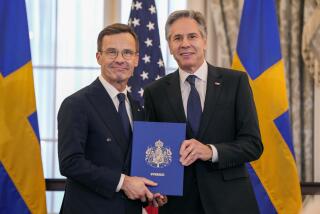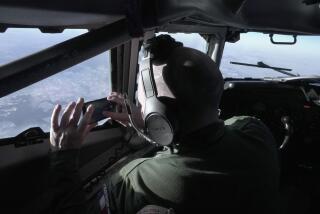Russia expels Swedish diplomat in latest sign of tension in Baltics

NATO troops make an amphibious landing off the coast of Ustka, northern Poland, during military exercises in mid-June. The multinational exercises aimed to demonstrate alliance capability to defend the Baltic region.
- Share via
Russia expelled a senior Swedish diplomat on Monday in retaliation for a Russian envoy being kicked out of Stockholm last month in the latest incident reflecting the tensions mounting between Moscow and its Baltic neighbors.
Word of the tit-for-tat expulsion of the unnamed senior envoy coincided with disclosure by NATO sources that the dangerous practice of Russian and alliance warplanes violating sovereign airspace and provoking the scrambling of defensive sorties has escalated over the last two years to a level unprecedented since the end of the Cold War.
In a statement issued in Stockholm, the Swedish Foreign Ministry confirmed one of its high-ranking diplomats had been banished from the embassy in Moscow. Foreign Ministry spokesman Johan Tegel told Swedish broadcaster SVT that the envoy was expelled for “acts improper to his post and status” -- diplomatic shorthand for spying.
The Russian action followed the recent branding by the Swedish government of a Russian diplomat as persona non grata, for behavior inconsistent with diplomacy, another allusion to espionage.
Moscow’s relations with the former Baltic states of the Soviet Union -- now-independent Estonia, Latvia and Lithuania -- as well as with former Warsaw Pact ally Poland and non-NATO member Sweden have been strained in recent years by Kremlin aggression against Ukraine and other former Soviet republics.
Swedish naval authorities waged a massive weeklong hunt for a suspected Russian submarine spotted in the archipelago surrounding Stockholm in October. The vessel wasn’t found but Swedish security officials remain suspicious that the undersea intruders were sent by Moscow.
NATO member states in the Baltic Sea area have been engaged in a dangerous cat-and-mouse game with Russian warplanes over the last two years, with record numbers of airspace violations or near-violations prompting them to scramble aircraft to intercept the intruders and signal their resolve to defend their sovereignty.
After a fourfold increase in Russian flights into or near Western countries’ airspace last year, the Kremlin’s fighter jets are on a course this year to exceed the more than 500 intrusions logged in 2014. Alliance warplanes have scrambled at least 300 times so far this year in response to Russian provocations, European media reported Monday, citing unnamed North Atlantic Treaty Organization officials.
NATO Secretary-General Jens Stoltenberg has warned that the increasing taunts by Russian warplanes, many of them nuclear-armed, pose the potential for catastrophe: They fly through airspace also used by civilian aircraft, but the military planes’ transponders are turned off so that they are invisible on radar.
Kremlin officials have described the aerial posturing as a response to what they see as aggressive encroachment by NATO into Russia’s “sphere of influence,” the now Western-allied states that a quarter of a century ago were part of the Soviet Union or aligned with Moscow within the communist-era Warsaw Pact.
NATO officials have launched plans for major reinforcement of defenses for the Baltic states, with a rapid-reaction force poised to respond to any aggression against a member state and major shifts of troops and equipment closer to the eastern borders.
The Western alliance a year ago cut off all cooperation with Russia after the Kremlin sent troops to seize Ukraine’s Crimea area and Russian President Vladimir Putin annexed the strategic territory in March 2014. NATO has also strongly criticized Russian support for separatist rebels fighting Ukrainian government forces in eastern Ukraine, a 16-month-old conflict that has taken at least 6,500 lives.
Follow @cjwilliamslat for the latest international news 24/7
More to Read
Sign up for Essential California
The most important California stories and recommendations in your inbox every morning.
You may occasionally receive promotional content from the Los Angeles Times.











